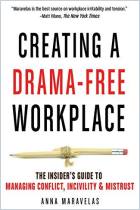Join getAbstract to access the summary!

Join getAbstract to access the summary!
Ben Dattner and Darren Dahl
The Blame Game
How the Hidden Rules of Credit and Blame Determine Our Success or Failure
Free Press, 2011
What's inside?
Do you think you’re taking too much blame or not getting enough credit? Don’t get caught up in a game you can’t win.
Recommendation
No one likes to be blamed when something goes wrong. Unfortunately, far too many people are quick to point fingers when the company misses a deadline or a project falls short of expectations. A work culture where employees hesitate to make decisions or don’t believe that they receive enough credit creates dysfunction, prevents a firm from operating efficiently and stifles growth. Psychologist Ben Dattner’s first-rate analysis of the dynamics of “the blame game” is pertinent reading for employees everywhere, from CEOs to receptionists. getAbstract believes this meaningful book will compel you to reassess your business environment, your relationships with co-workers, and, most important, your own motives and behavioral patterns. If you fail to take advantage of this bountiful knowledge, well, you have only yourself to blame.
Summary
About the Authors
Ben Dattner, founder of Dattner Consulting, is an adjunct professor of psychology at New York University. Darren Dahl, contributing editor at Inc. magazine, has collaborated on several business books.


















Comment on this summary